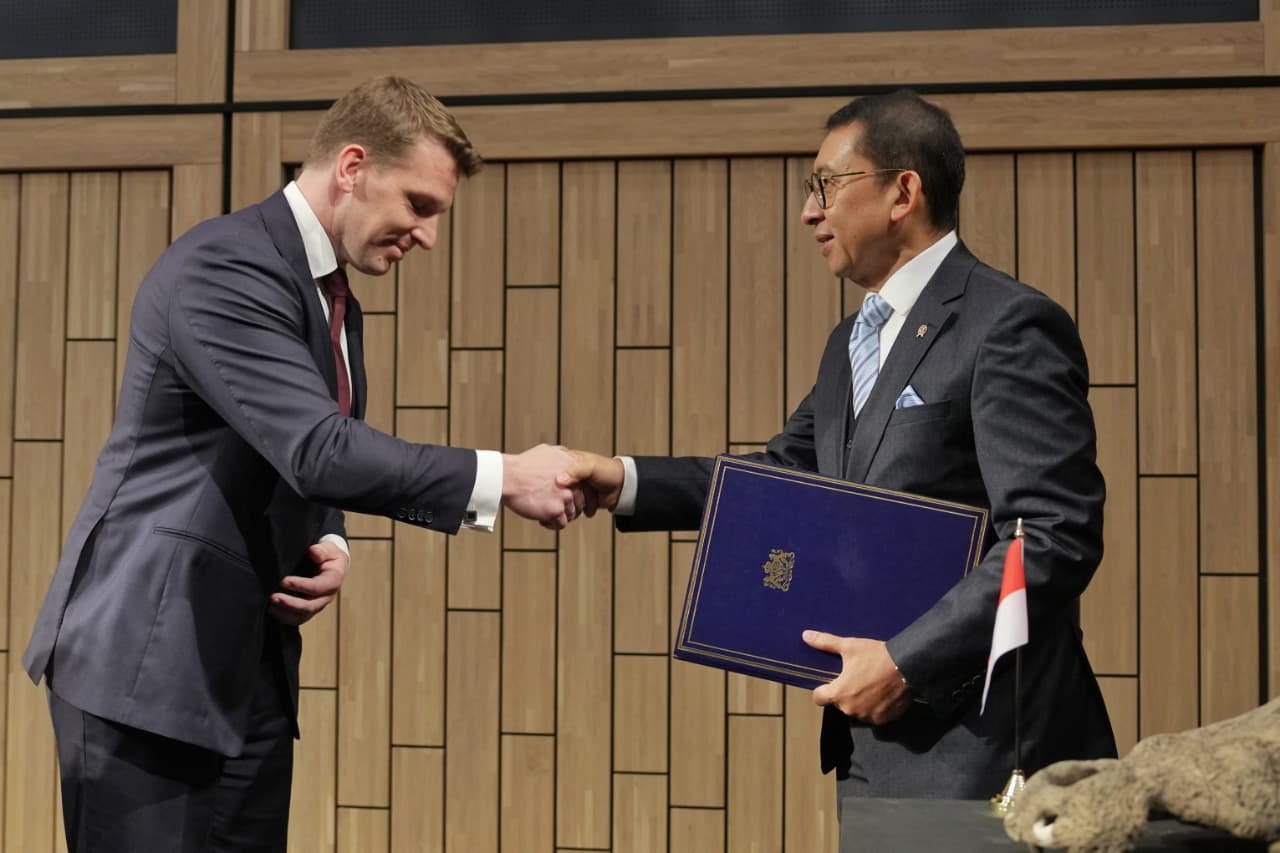🇮🇩 Indonesia regains Dubois fossil collection
🦴 Landmark return strengthens identity & research ties with the Netherlands

🚨 The Main Takeaway
The Dutch government has handed back the Dubois Collection — about 28,000 fossils 🦴 including Homo erectus 🧑🔬 remains from Java & Sumatra 🌋 — to Indonesia 🇮🇩, in a ceremony led by Culture Minister Fadli Zon 🎤 at the Naturalis Museum in Leiden, the Netherlands on Friday (9/26).
🔍 Why It’s on Our Radar
Restores Indonesia’s prehistoric heritage 🏛️, much of it taken during colonial times.
Enhances cultural diplomacy 🤝 between Indonesia and the Netherlands.
Ensures global research 🔬 access while affirming legal ownership. 📜
⚠️ What’s at Stake
Loss or damage risk ⚡ during transfer, preservation, and digitization.
Balancing national pride 🇮🇩 with scientific openness. 🌍
Long‐term care 🛡️, capacity building 📚, and conservation 🧴 of the fossils in Indonesia.
🌏 The Big Picture
The Dubois Collection 📦, assembled by Eugène Dubois 👨🔬 in the late 19th century (1891–1892), came from Trinil, East Java 🌋 and shaped the global understanding of human evolution 🧬.
🌐 The Regional Stakes
Strengthens Indonesia’s role in archaeology 🏺 and paleoanthropology 🔬 across Southeast Asia.
Could spark more repatriations ✈️ of colonial-era artifacts in the region.
Boosts public interest 👥 and academic research 📖 in human origins.
📌 Beyond the Headlines
Minister Zon said the return “closes a historical gap ⏳ and restores dignity ✊” to knowledge from Trinil.
Since early 2025 📅, Indonesia’s Repatriation Team 👥 has worked with the Dutch Colonial Collections Committee. 🗂️
A joint team 🤝 will oversee exhibition 🖼️, digitization 💻, research 📚, and conservation. 🛡️
📚 Need More Angles?
Media briefing on the repatriation of the Eugene Dubois fossil collection
(RHZ/QOB)



